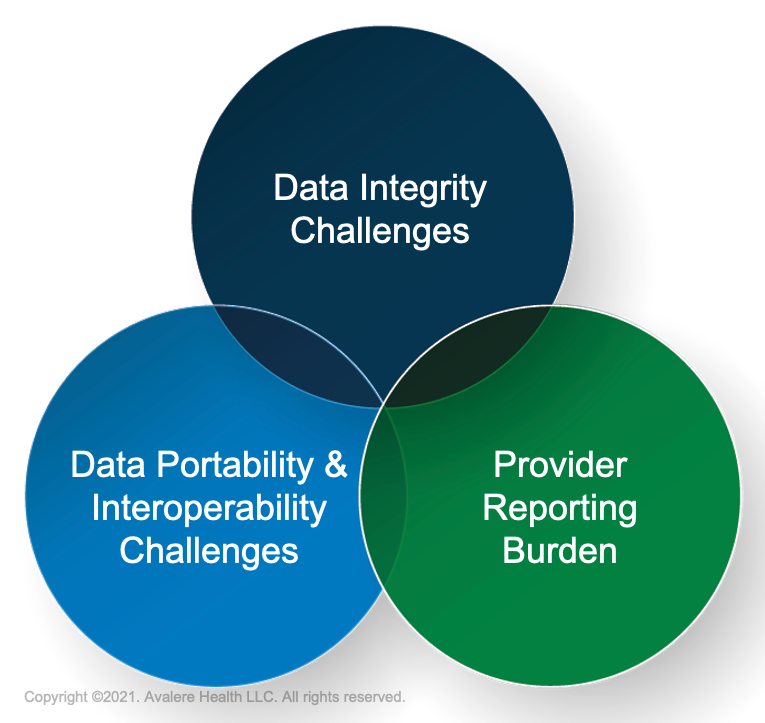The Need for a Centralized Immunization Information System
Summary
Immunization Information Systems (IIS), or immunization registries, are used across the US to provide consolidated and complete accounts of patient immunization history in a given city, state, or region.To capture immunization rates, participating providers record administered doses in geographic-specific registries, which vary in terms of reporting requirements, structure, and data capture systems. Despite widespread use and applicability for public health programs, no federal or cross-state registries collect vaccination information in the US; instead, providers report to local and state registries and databases.
The ongoing rollout of COVID-19 vaccination programs has accentuated several of the challenges associated with the lack of a centralized vaccine administration repository. Federal initiatives to expand nationwide immunization reporting during the COVID-19 pandemic could support solutions to existing reporting and data portability barriers for routine, seasonal, and COVID vaccines.
Current System Gaps and Barriers
Existing barriers to vaccine data collection have led to inconsistent immunization data capture and exchange, and have prevented opportunities to maximize the utility of immunization data for provider decision making and public health purposes. Highly variable IIS infrastructure across states, localities, and hospital systems reduce interoperability between IIS, which can require substantial time investment for providers and reporting staff and lead to inaccurate capture of patient-specific data and record duplication. These issues can lead to missed vaccination opportunities (e.g., missed booster doses and lack of series completion). Additionally, inconsistent implementation of IIS data standards and varying policies regarding reporting requirements can further impede data capture, particularly for adult immunizations, and cause uncompensated provider burden.

Through the Vaccine Management Business Improvement Project (VMBIP), the Center for Disease Control (CDC) took steps in the early 2000s to centralize inefficient disparate processes and continues to recognize positive results. The Vaccine Tracking System (VTrckS) was born out of VMBIP in 2013. VTrckS is a secure, web-based information technology system that integrates the entire publicly funded vaccine supply chain. Prior to the roll-out of VTrckS, the technological infrastructure comprised multiple stand-alone systems. The CDC also took steps as part of the VMBIP program to centralize vaccine distribution in 2008. Sixty-four awardee health departments transitioned from a dispersed model (where they managed their own distribution and 430+ storage depots) to a centralized model (leveraging 1 private distributor with 2 national depots) to deliver vaccines directly to providers. The CDC’s centralized model in both instances successfully allowed states and the Vaccines for Children program to collect clean distribution data, reduce waste, and redistribute funding while increasing supply chain efficiency.
In addition to the utilization of these existing centralized systems, federal agencies have developed new mechanisms to support vaccine tracking and ordering, including the Immunization Gateway, Immunization Data Lake, and Vaccine Administration Management System. These systems facilitate data storage and sharing and allow for useful applications of immunization data. These new, more efficient systems and concepts can be built on to address the need for centralized IIS data.
The COVID-19 pandemic has further catalyzed immunization infrastructure improvements to support rapid roll-out of COVID-19 vaccines. However, ongoing challenges with COVID-19 vaccine documentation demonstrate the potential value in a streamlined national immunization registry system or similar data repository that collects and aggregates immunization data from various state and local registries. Specifically, such a system could:
- Reduce waste by better targeting supply to vaccine providers and informing administrative functions (e.g., ordering and reallocation)
- Assist providers in targeting patients for administration of COVID-19 and other Advisory Committee on Immunization Practices-recommended vaccines
- Benefit patients by providing them a centralized way of obtaining their entire immunization history
- Bolster nationwide efforts to address health disparities by identifying under-vaccinated populations, engaging clinicians, and partnering with community leaders and community-based organizations to support shared clinical decision making, address concerns leading to vaccine hesitancy, and support access
To receive Avalere updates, connect with us.
Avalere Health is an Inovalon company, a leading provider of cloud-based platforms empowering data-driven healthcare. We believe in the power of data, informing actionable insights, delivering meaningful impact, and driving stronger patient outcomes and business economics.
January 23, 11 AM ET
Learn More



